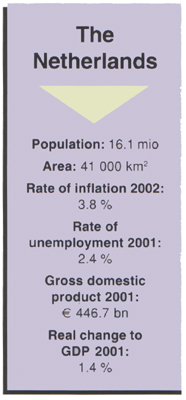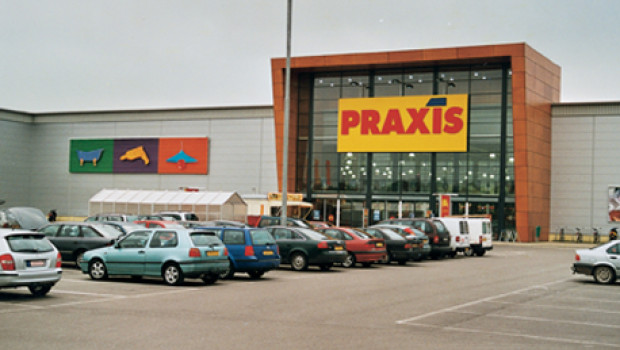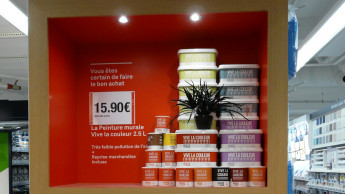Signs of below-average growth for the DIY market in the Netherlands are for the first time in ages becoming apparent for the year 2002, and the same is being forecast for this year as well
Praxis continues to occupy the number one spot in terms of retail area in Holland.
GfK’S market researchers take total sales of 4.1 bn euro as their basis for 2002, which corresponds to growth of 3.8 per cent compared with 2001. A result that is slightly down in comparison with the growth of the previous five years, which amounted on average to 4.5 per cent annually.
(pdf file download)
One of the reasons for this development is the overall weakening of the economic situation. What is more, the introduction of the euro led to slightly increased prices. Consumers first had to get used to the new currency and, at the beginning, tended to do their conversions rather generously, which led to markedly low bank balances for many households after a few months. This had the effect of making consumers thrifty all of a sudden. Yet in terms of sales, this last December outperformed all previous Decembers. St Nicholas celebrations and Christmas brought record sales for the entire retail sector, from which the DIY sector will also have profited.
(pdf file download )
The DIY trade generated approximately 7.9 per cent of its annual sales in the months of November and December. The forecast notes one significant difference over previous years: the fact that paint shops were the only line of specialist traders that may have achieved a small increase. Things looked quite different in 1999, when they were 1.8 per cent in the red. The hardware trade, still at that time notching up growth of 2.5 per cent, could not avoid a slight loss of 0.8 per cent in 2002. Particularly the second half of the year saw hardware dealers and the small-format DIY stores slip into the red, whereas paint trade sales did not sink below the zero line until the autumn. All in all the specialist retail trade had little reason to celebrate during the second half of the year, a tendency that will probably carry on in 2003 as well. If the number of smaller outlets should go down, the others will be able to maintain their level of sales or even improve it slightly, but the result overall will certainly remain well below that of the previous year.
pdf file download )
It is perfectly possible, since the figures for 2002 are no more than a forecast, that a number of businesses may have succeeded in improving their results through the application of creative ideas. However, on the other hand, a sales figure of 4.1 bn euro seems very realistic, and those involved in the Dutch sector will have to roll up their sleeves to ensure growth during this current year. A first forecast indicates 3 per cent.
Last year went fairly peacefully for the DIY multiples. The only exception to this was the integration of Bricorama into Intergamma. The French company became a franchisee of the group and the rebadging of the stores to the Gamma and Formido brand names is already in full swing. Several outlets are already displaying the new look. As a result of the link-up Gamma has grown by two stores to 141 and so held on to its leading position at the top of the league table. Praxis has seen no change and consequently still has 120 stores, though the group hit the headlines in Belgium through its acquisition of Brico, the DIY channel of the GIB group. Formido, the second marketing arm of the Vendex/KBB group, lost one store and so yielded third place to Karwei, Intergamma’s marketing channel. This recorded an increase of six outlets, which is also linked to the Bricorama deal. The number of Multimate and Big-Boss stores did not see any increase, in complete contrast to Fixet, which was able to point to a gain of four outlets. Hornbach increased its total of DIY branches in the Netherlands to five, following two new openings in July and September. Two separate garden centres must also be added on. This means that the only foreign supplier now has a firm footing in the country. The total of seven outlets will certainly not stay that way for long.
The HDB group remained the absolute leader in the case of the small-format stores. Even though Hubo lost 15 stores and Doeland forfeited two outlets, there were still 206 Hubos and 105 Doelands left. Fixet Klusmarkt numbered 77 outlets despite losing three, which were presumably converted to the Fixet Service Bouwmarkt concept. The Agri Retail group, which is rather more geared to the green sector, has reduced its four former marketing formats to two, Welkoop and Boerenbond. As a result of this restructuring Welkoop had 150 stores, or 42 more than at the end of 2001, but Boerenbond lost four outlets for a revised total of 114.












